
© ROH/Bill Cooper. (Click image for larger version)
Royal Ballet
Romeo and Juliet
London, Royal Opera House
19 October 2013
www.roh.org.uk
Kenneth MacMillan’s Romeo and Juliet is fast approaching its 50th anniversary and its 500th performance at Covent Garden, and it’s greatly to the credit of the Royal Ballet that the humdrum nights along the way have probably been well outnumbered by the times when something has lifted it out of the ordinary. Sometimes it’s the sheer quality of the ensemble playing, sometimes it’s the brilliance of the stars in the central roles, sometimes the offstage story gives it an added resonance: for this run the company is putting on what promises to be some very strong supporting casts and some new stars too, but the big story on opening night was the return to the stage of Lauren Cuthbertson after a long, long injury break. Would she make it? Yes, she would.
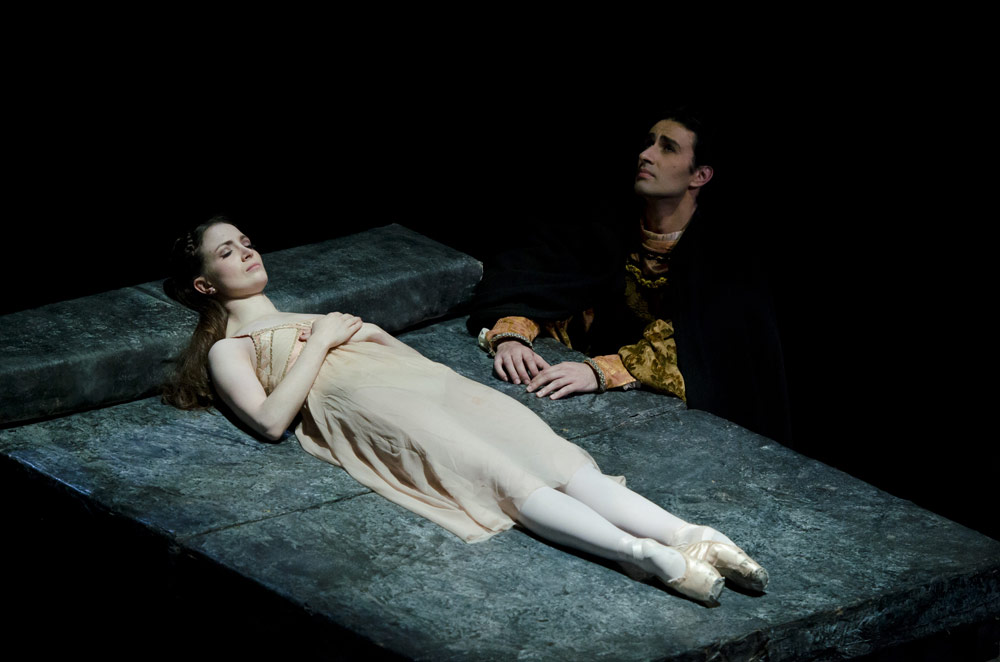
© ROH/Bill Cooper. (Click image for larger version)
The first time I ever saw Cuthbertson she was 17, substituting for an injured, more senior dancer in a piece by Cathy Marston in the Clore Studio: on the way out afterwards I said to one of the company’s senior staff “But she could do Juliet!” and got the answer, “Yes, we know”. They made her wait a couple of years and then her debut performances, with the equally compelling Edward Watson as her Romeo, caused a minor sensation and lots of ‘star is born’ reviews. That must seem an age ago to her now, and her wild, intuitive Juliet is probably gone beyond recall: what she’s replaced it with is totally convincing, to a degree I’ve not often seen.
Cuthbertson isn’t one of those tiny doll-like Juliets who can get through the first scene on sweetness alone. Instead she gives hints of gaucheness – not quite a tomboy but certainly not a girlie girl – you’d bet heavily against her wardrobe being mainly pink. (I kept thinking how good she’d be as Tatiana in the early scenes of Onegin.) She carries this through her first encounter with Paris and into the ballroom scene, where she’s clearly still trying to learn how a nice young woman is supposed to behave; when she meets Romeo she doesn’t know what’s hit her and even through the balcony pas de deux she looks as if she’s still trying to work out what it’s all about.
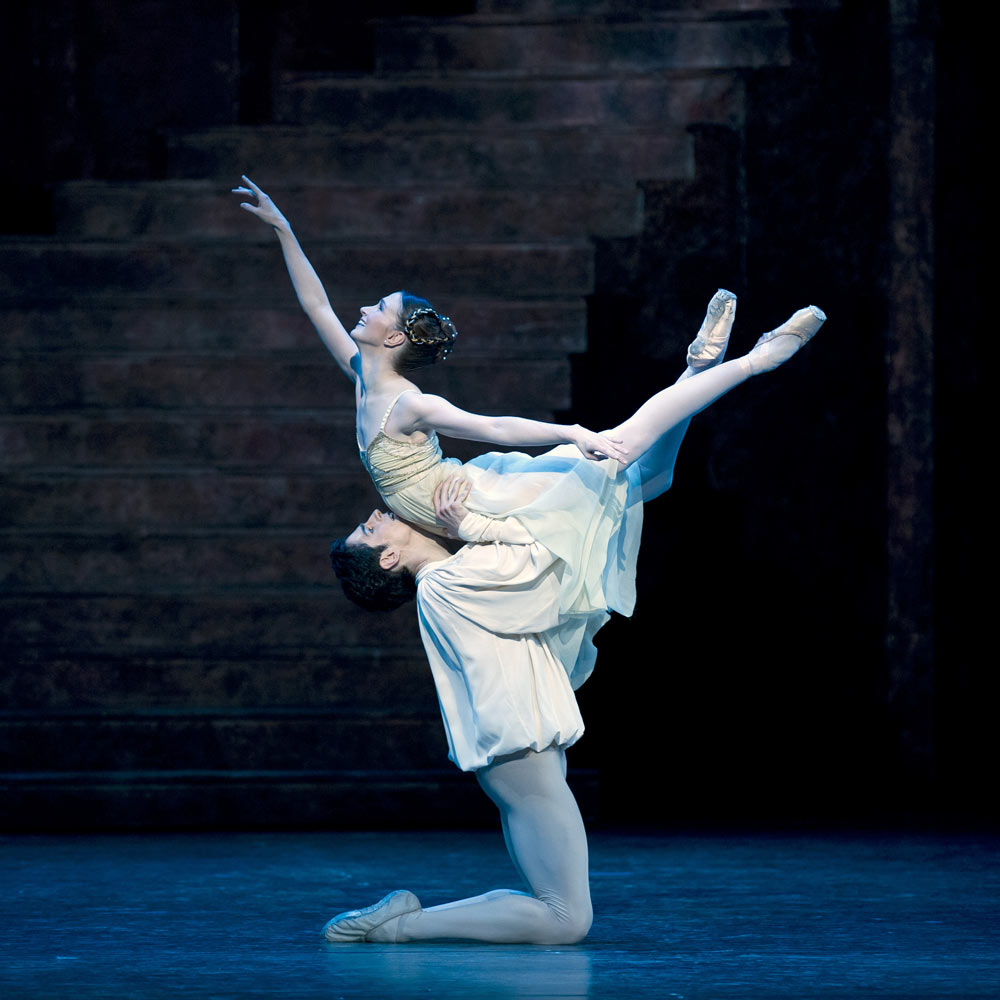
© ROH/Bill Cooper. (Click image for larger version)
So far, so good, and rather charming too: but it’s in the last act, after Romeo has left her, that her interpretation really takes off. She was no longer a child – not in the ‘become a woman’ sense but like someone who’s woken up to the reality of life and decisions and responsibilities. She still runs like a child but the way she stands, the way she relates to her parents, the way she seems to think about her dilemma, are all changed – it’s an in-depth characterisation and a very individual and real one, and I was deeply impressed. Her death scene was emotionally strong without lapsing into hysteria, and her evident relief and happiness during the curtain calls were entirely justified.
Bonelli’s Romeo is a steady, likeable sort of boy, who fools around a bit but would probably have grown up to be a supportive husband and a loving father had he not been struck by the lightning of impossible love. I don’t think he’s the best of foils for Cuthbertson dramatically, but they looked well together and the passion of his grief at Juliet‘s apparent death was finely done. From the rest of a topline cast I have to pick out Bennet Gartside, whose brief but telling appearance as the Prince of Verona was as authoritative and impressive as any I remember, Leslie Edwards included. He’s becoming a master of less-is-more acting, one of the company’s most admirable artists.

© ROH/Bill Cooper. (Click image for larger version)
And while we admire and enjoy today’s talents, it’s good to see that the greats of the past are still honoured: the company has dedicated this run of Romeo and Juliet to the late David Wall, one of the first half-dozen Romeos and still one of the most memorable, and an occasional Mercutio, too.

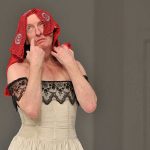
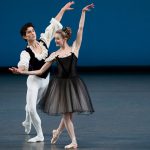
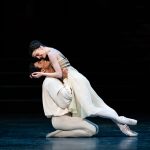


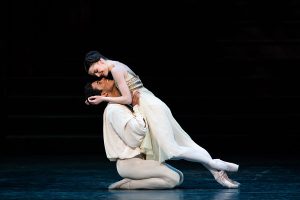
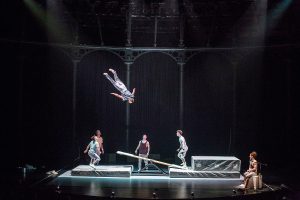



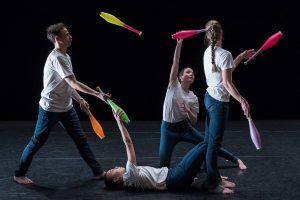
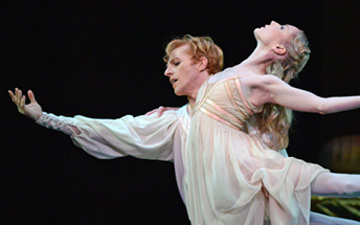
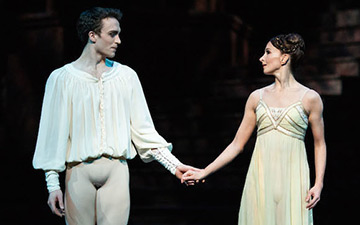
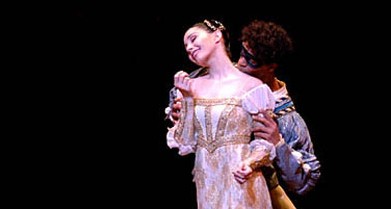
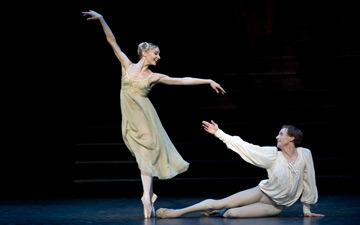
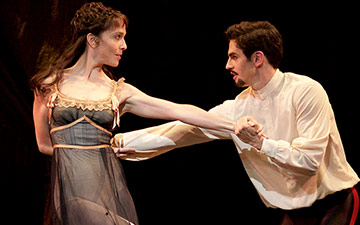
You must be logged in to post a comment.